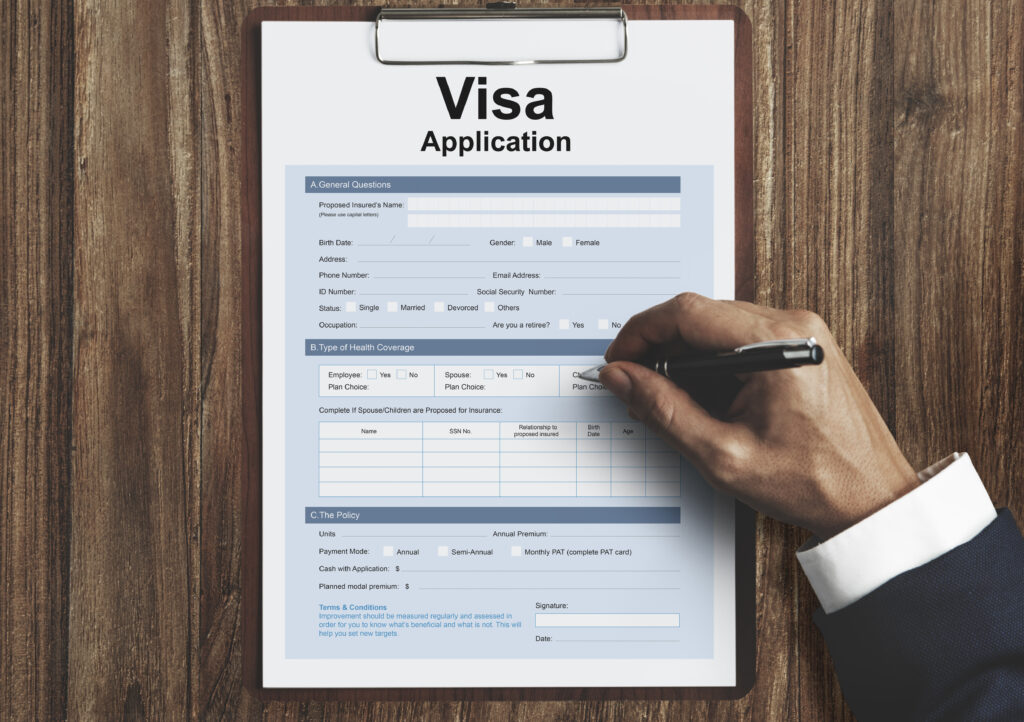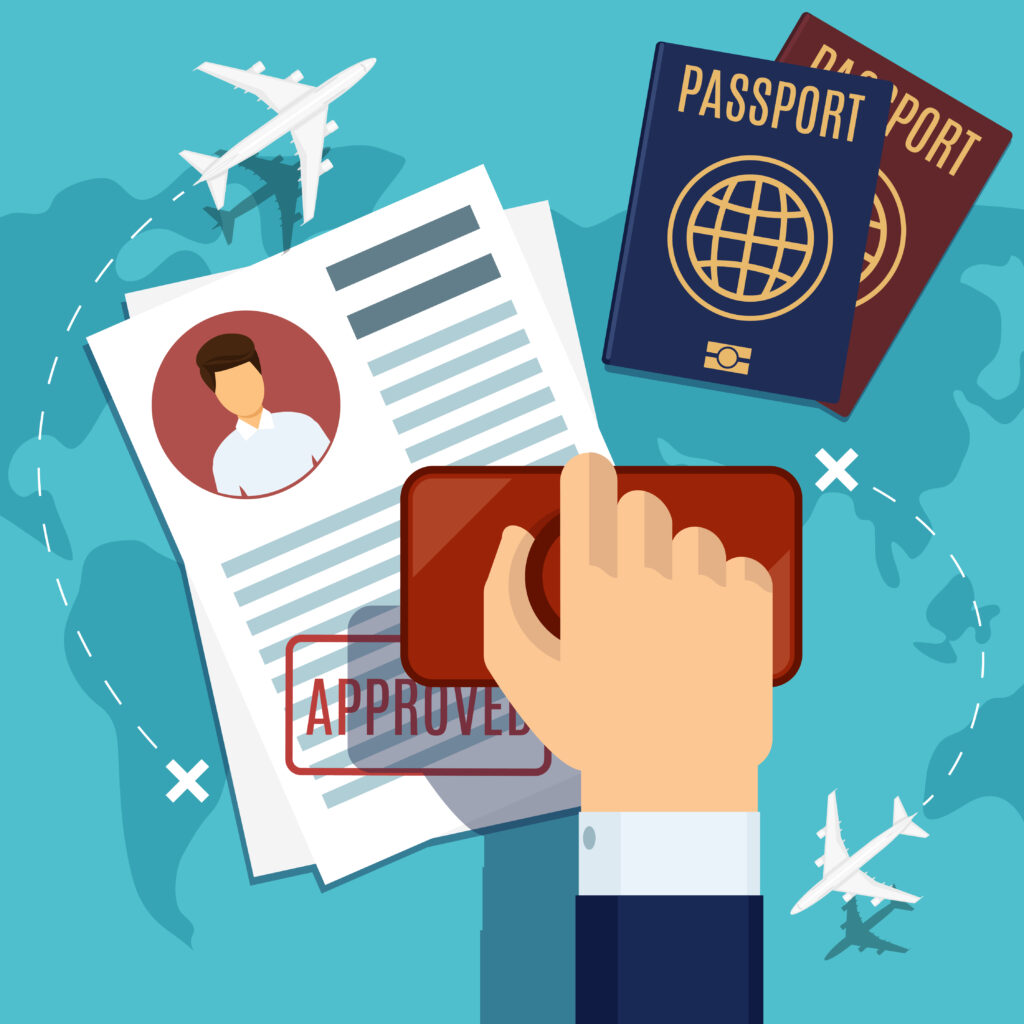
Table of Contents
should travel visas be strict?
Whether travel visas should be strict or not is a matter of debate, as there are both advantages and disadvantages to having strict visa policies.
On one hand, strict travel visa policies can help ensure national security by controlling who enters a country and for what purpose. They can also help prevent illegal immigration and reduce the risk of crime or terrorism.
On the other hand, strict visa policies can discourage tourism and international business, which can have a negative impact on a country’s economy. They can also create barriers for people who want to visit friends and family, attend conferences or events, or participate in educational or cultural exchanges.
Travel visas are a requirement for individuals who wish to visit or immigrate to a foreign country. These visas can range from being relatively easy to obtain to being quite difficult and strict. While strict visa policies can help ensure national security, they can also create barriers for individuals who wish to travel, study, or work internationally.
In this article, we will explore whether should travel visas be strict? the pros and cons of strict travel visas and how they can impact tourism, international business, and cultural exchange.

Pros of Strict Travel Visas:
One of the main advantages of having strict travel visa policies is that it can help ensure national security. Countries with strict visa policies have more control over who enters their borders and for what purpose. This can help prevent potential threats such as terrorism, illegal immigration, and crime.
For example, the United States has a strict visa policy for individuals from countries that are considered a high risk for terrorism. This policy requires additional screening and background checks before visas are issued, which can help prevent potential threats from entering the country.
Another advantage of strict visa policies is that they can help prevent individuals who may be a burden on the country’s economy or who may have a criminal history from entering. Many countries have strict visa policies for individuals who wish to immigrate or work in the country. These policies often require proof of education, work experience, and financial stability, as well as additional screening and background checks.

| Pros of Strict Travel Visas | Details |
|---|---|
| Ensure national security | Strict travel visa policies can help ensure national security by controlling who enters a country and for what purpose. They can prevent potential threats such as terrorism, illegal immigration, and crime. For example, the United States has a strict visa policy for individuals from countries that are considered a high risk for terrorism, which requires additional screening and background checks before visas are issued. |
| Control who enters a country and for what purpose | Strict visa policies give countries more control over who enters their borders and for what purpose, which can help prevent abuse of the immigration system. This can also help protect a country’s resources and services for its citizens. |
| Prevent illegal immigration and reduce the risk of crime or terrorism | Strict visa policies can help reduce the risk of illegal immigration and crime, as individuals who do not meet the visa requirements are not allowed to enter the country. This can help reduce the burden on a country’s law enforcement and social services. |
| Prevent individuals who may be a burden on the country’s economy or who may have a criminal history from entering | Many countries have strict visa policies for individuals who wish to immigrate or work in the country. These policies often require proof of education, work experience, and financial stability, as well as additional screening and background checks. This can help prevent individuals who may be a burden on the country’s economy or who may have a criminal history from entering the country. |
Cons of Strict Travel Visas:
While there are advantages to having strict travel visa policies, there are also several disadvantages that can have a negative impact on tourism, international business, and cultural exchange.
One of the main disadvantages of strict visa policies is that they can discourage tourism and international business. Countries with strict visa policies may see a decrease in the number of tourists who visit, which can result in a loss of revenue for the tourism industry. In addition, strict visa policies can make it difficult for international students and researchers to attend conferences, pursue academic opportunities, and collaborate with colleagues from other countries.
For example, the United States has implemented travel bans on individuals from certain Muslim-majority countries, which has been criticized for being discriminatory and unjust. This policy has prevented many individuals from attending academic conferences and pursuing educational opportunities in the US, which has had a negative impact on cultural and scientific exchange.
Another disadvantage of strict visa policies is that they can be discriminatory and create barriers for individuals based on their nationality, race, or religion. This can lead to feelings of exclusion and resentment, which can harm relationships between countries and hinder cultural exchange.
| Cons of Strict Travel Visas | Details |
|---|---|
| Discourage tourism and international business | Strict visa policies can discourage tourism and international business by making it more difficult and expensive for individuals to obtain visas. This can result in a decrease in the number of tourists who visit, which can have a negative impact on the tourism industry and the economy as a whole. In addition, strict visa policies can make it difficult for international students and researchers to attend conferences, pursue academic opportunities, and collaborate with colleagues from other countries. |
| Create barriers for individuals who want to visit friends and family, attend conferences or events, or participate in educational or cultural exchanges | Strict visa policies can create barriers for individuals who want to visit friends and family, attend conferences or events, or participate in educational or cultural exchanges. This can lead to feelings of exclusion and resentment, which can harm relationships between countries and hinder cultural exchange. |
| Discriminatory and create barriers based on nationality, race, or religion | Strict visa policies can be discriminatory and create barriers for individuals based on their nationality, race, or religion. This can lead to feelings of exclusion and resentment, which can harm relationships between countries and hinder cultural exchange. For example, travel bans based on religion or nationality have been criticized for being discriminatory and unjust. |
| Harm relationships between countries and hinder cultural exchange | Strict visa policies can harm relationships between countries and hinder cultural exchange by creating barriers and exclusion. This can lead to a lack of understanding and cooperation between countries, which can have negative long-term consequences. |

Conclusion:
In conclusion, the decision to have strict travel visas or not depends on a country’s priorities and values. While national security is important, it is also important to ensure that visa policies are fair, transparent, and do not create unnecessary barriers for individuals who wish to travel, study, or work internationally. Countries should strive to strike a balance between national security and economic and cultural exchange, and implement visa policies that are fair and transparent. By doing so, countries can ensure that their borders remain secure while still fostering international relationships and promoting cultural exchange.